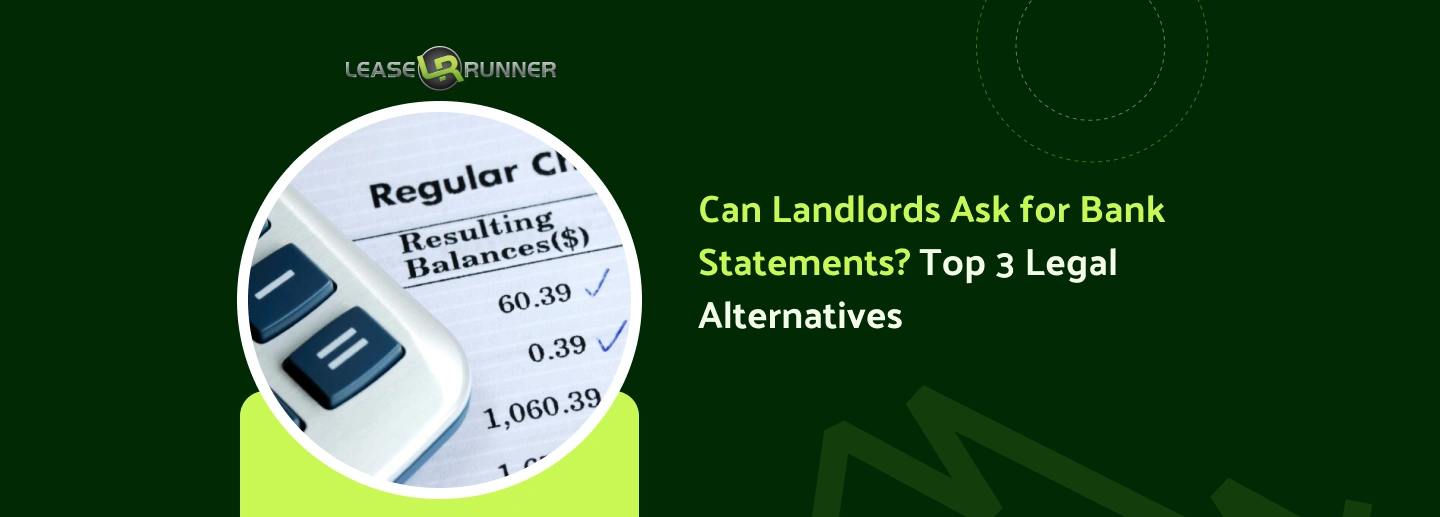Anybody handling their money, asking for loans, or renting a house has to know the difference between a soft and hard credit check. This issue often raises several common questions, like "Do credit checks affect your credit score?" or "How long does a hard inquiry stay on your credit report?"
Understanding the principles of these credit checks can enable you to guard your credit and make wise financial choices.
To help you with that, today's article will define soft pull credit, hard inquiry, and how each of them influences your credit score. We will also discuss the differences between soft and hard pulls and provide advice on how to guard your credit during hard pulls.
Whether you rent, borrow, or simply want information, this article will equip you to negotiate credit checks properly. Scroll down now!

Quick Facts About Soft and Hard Credit Checks
What Is a Soft Credit Check?
A soft credit check (or “soft credit inquiry”) gives a quick look at your credit. It does not lower your credit score. A soft credit inquiry happens when you check your own credit, or when a company checks to offer you a deal. Landlords use soft pulls for background checks.
For example, LeaseRunner’s tenant screening uses soft credit pulls. You do not need a permit in all cases. Employers, insurers, and landlords may use soft checks for identity verification and credit monitoring services. A soft check is not for loans or credit limit changes.
Common uses of soft credit checks:
- Reviewing your own credit score with a credit monitoring service.
- Getting pre-approvals for credit cards and loans, including auto and personal loan offers.
- Employers are conducting background checks during the hiring process.
- Insurers are giving quotes for premium rates.
- Tenant screening by landlords for apartment rentals.
- Verifying identity when signing up for financial services.
Because a soft credit inquiry does not impact a credit score, consumers can use it to monitor changes or work with landlords' background checks without stress.
How Soft Inquiries Work?
A soft pull accesses high-level details about payment history, current credit accounts, or public records. Lenders, employers, and landlords use soft inquiries to check the basics for identity verification or risk assessment.
For instance, a landlord using a credit monitoring service like the LeaseRunner tenant screening report checks for red flags (such as missed payments) but will not see private account details. Checking your own score, browsing for pre-approvals for credit cards, or receiving offers does not leave a lasting mark. For landlord and employer uses, soft inquiries often help confirm eligibility well before any hard decisions are made.
Soft inquiries might occur when:
- Credit bureaus process special requests (like dispute inquiries with Equifax, Experian, TransUnion).
- You review your own credit through a free annual report.
- An employer performs a non-financial check for hiring.
- Landlords review your background for an apartment.
Soft credit inquiry results are limited compared to hard pulls. They display basic info, a resident score, or summary details from resident score vs credit score reports, but not the granular data of a full credit report.
Examples of Soft Credit Checks
- Checking credit for pre-approval loan applications, such as auto loans or student loan offers.
- Viewing your credit report using a credit monitoring service.
- Employers screen candidates for financial responsibility with employer background checks.
- Landlords perform a quick inquiry to review creditworthiness, which is covered in resources about how to check a tenant's screening report.
- Insurance companies calculate price quotes before final contract approval.
- Banks are sending targeted pre-approval offers based on your credit profile.
For renting, a soft inquiry can check if you meet payment guidelines, as discussed in credit score vs credit report comparisons, and help both parties avoid unnecessary risk.
Do Soft Inquiries Affect Your Credit Score?
No. A soft credit inquiry does not impact a credit score. You can review your report or get pre-approved offers with no harm. Background checks for jobs or apartments use soft pulls. A soft check is best for landlords' background checks. Want more details on soft pulls? Check our LeaseRunner credit check guide!
How Long Do Soft Inquiries Stay on a Credit Report?
Soft checks may stay for one to two years. They do not matter for new loans. Hard inquiries stay on your credit report for 2 years and can lower your score a little. Hard pulls happen for loan applications: mortgage, auto loan, or personal loan. Find more info in this explanation about whether a lease hurts your credit here with LeaseRunner.
What Is a Hard Credit Check?
To distinguish significantly between soft and hard credit checks, it’s necessary to know the basics of hard credit evaluation right here.
A hard credit inquiry (or “hard credit check”) happens when a lender or business examines your credit profile for a decision. This usually occurs for a credit card application, mortgage application, or other major loan applications: mortgage, auto loan, student loan, or personal loan.
Each hard pull is visible to all lenders. It must be approved by you, and may result in a score drop of 5–10 points. Unlike a soft credit inquiry, which does not impact a credit score, a hard check flags new borrowing activity. Multiple hard inquiries in a short period can signal financial instability to future lenders. Hard inquiries are a key difference between soft vs. hard credit inquiries.
How Hard Inquiries Work?
Hard credit checks happen when you formally ask to borrow money or open a new account. Lenders need detailed information such as your payment history, current debts, and income during identity verification.
A hard check is triggered by the reason for a hard pull. For example, applying for a car loan or renting an apartment. The check shows on your report, and all lenders can see it. Guides on how to pass a rental credit check explain the role of hard inquiries when renting or leasing.
Some common reasons for a hard inquiry:
- Applying for a new credit card.
- Requesting a mortgage.
- Getting approval for a student loan.
- Signing up for a personal or auto loan.
- Landlords conduct a full credit check before leasing.
- Employers perform background checks for jobs that require financial reliability.
For rental applications, hard inquiries may be needed if a landlord wants deeper insight than a soft pull offers, as covered in what credit references are on a rental application.
Examples of Hard Credit Inquiries
- Credit card application: Every time you apply, the lender runs a hard pull.
- Mortgage application: A hard inquiry is required for every major loan when buying a house.
- Auto loan: Dealers and banks will run a hard check.
- Student loans: Agencies check your history before lending.
- Renting or leasing: Some landlords use hard pulls as part of their background checks.
Hard inquiries also happen with background checks for an apartment and employers in sensitive roles.
Do Hard Inquiries Affect Your Credit Score?
Yes. A hard credit inquiry temporarily lowers a credit score, usually by a few points. The impact is small, but it can add up if you submit many applications at once. For example, five hard inquiries in a month can make lenders worry about a financial instability signal.
If errors or unauthorized hard pulls show up, you should dispute inquiries with Equifax, Experian, and TransUnion right away. Some helpful tips for this process are available in guides to verifying tenant income.
How Long Do Hard Inquiries Stay on a Credit Report?
A hard credit inquiry stays on a credit report for 2 years, but its impact drops after the first year. Lenders see the record, but it carries less weight over time unless there are many recent inquiries. This rule matters most if you plan several loan applications together.
Soft inquiries, by contrast, are only seen by you and never affect your score. When a soft credit check is used, like for pre-approvals for credit cards, there is no score change at all. Always check your report for errors. If you see a hard pull you did not authorize, contact the bureau to correct it.
How Do Credit Checks Affect Your Credit Score?

Soft Credit Checks
Soft credit pulls or inquiries do not affect your credit score at all. You can check your own credit as often as you want without any risk. Employers and landlords often use soft pulls to screen applicants without harming their credit.
Hard Credit Checks
Hard credit checks can cause a small, temporary dip in your credit score, typically between 5 and 10 points. The impact lessens over time, with most scores recovering within a few months if no additional hard inquiries are made. However, multiple hard inquiries in a short period can compound the effect and may signal risk to lenders.
Soft Pull vs Hard Pull: A Detailed Comparison
Managing your credit depends on knowing the difference between a soft and hard credit check. Here is a side-by-side comparison:
How Long Do Hard Inquiries Stay on Your Credit Report?
Hard inquiries remain on your credit report for up to two years. However, their effect on your credit score usually diminishes after about 12 months.
When shopping for loans like mortgages or auto loans, multiple hard inquiries within a short window (usually 14 to 45 days) are often treated as a single inquiry by credit scoring models, minimizing the impact.
How Credit Checks Impact Your Leasing Application with Leaserunner
When you apply for a lease through Leaserunner, we may conduct a soft pull credit check using the VantageScore 3.0 model to assess your creditworthiness.
Unlike a hard inquiry, which occurs when you apply for a credit card or loan, a soft pull does not affect your credit score. This means that when you apply for a lease, you don’t have to worry about a significant decrease in your credit score due to our credit check.
Additionally, you don’t have to unfreeze your credit file using LeaseRunner for tenant screening services.
When Is a Soft Credit Check a Good Option
Benefits for Tenants
A soft pull credit lets landlords evaluate tenants without damaging their credit records. This lets renters apply to many homes without worrying about several hard inquiries damaging their credit.
Benefits for Landlords
Soft pulls let landlords evaluate tenant creditworthiness fast and motivate more applications. If a closer credit evaluation is required, they could choose a hard pull. All in all, soft pulls are still a less invasive first step.
Hard Credit Checks: When Are They Necessary?
Hard credit checks are necessary when a lender or company needs a full view of your credit history to make a lending decision. This includes:
- Mortgage and auto loan applications
- Credit card applications
- Certain rental applications
- Requests for credit limit increases
These inquiries help lenders assess risk, but should be used judiciously.
How to Protect Your Credit During Hard Pulls

Hard credit inquiries could somewhat lower your credit score, therefore, you should control them carefully. Here are important strategies to protect your credit during hard pull times:
Ask if the Credit Check Is Soft or Hard
Find out from the lender if a soft pull or a hard inquiry will be used before applying. Soft pulls don't affect your score and are better for pre-approvals or casual checks.
Limit uses to what you really need
Apply only for credit when absolutely necessary. Many applications in a short period of time might indicate financial risk to lenders and lower your credit score. Be selective to prevent pointless probing queries.
Shop for loans within a short window
Rate searching for auto loans or mortgages should be done within a 14 to 45-day range. Credit scoring models usually count multiple hard inquiries in this window as one, minimizing impact.
Frequently check your credit score
Review your credit reports from Equifax, Experian, and TransUnion regularly for illegal hard inquiries. Early detection protects your score and helps you contest fake pulls.
You may minimize the effect of hard pulls and maintain good credit by limiting applications, scheduling your loan shopping, monitoring your credit, and specifying types of inquiries.
Final Thoughts
Knowing the difference between a soft and hard credit check helps you protect your credit score. While hard pulls might momentarily reduce your score, soft pulls are harmless and helpful for background checks and pre-approvals.
Therefore, always ask what type of check will be performed and limit hard pulls to essential applications. This information helps you control your credit so as to prevent surprises. If you need more helpful information on this topic, feel free to visit the LeaseRunner blog anytime.
FAQs
Q1. Can I rent an apartment without a hard credit check?
Some landlords use soft pulls for tenant screening. Always ask before applying.
Q2. What is a hard inquiry?
It’s a hard pull done when you apply for credit products, which may lower your score slightly.







